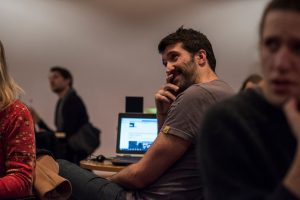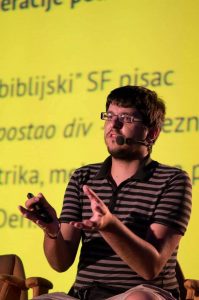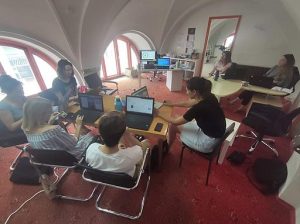While 2020 is winding down, libraries and librarians around the world are already busy preparing for the 2021 edition of the Wikimedia Foundation’s #1Lib1Ref campaign.
Divided into two sessions, the #1Lib1Ref Campaign will take place from 15 January to 5 February 2021 and from 15 May to 5 June 2021.
The Wikimedia Foundation aims to gather and share knowledge in a simple, reliable way. In many ways, its missions can be considered as complementary to those of libraries: to provide access to information to all, foster freedom of speech, support communities, and reduce digital literacy gaps.
The #1Lib1Ref Campaign (one librarian, one reference) involves libraries and the librarian community, and focuses on ensuring that there are sources for all information included in Wikipedia. In this way, it creates an opportunity for all libraries and citizens to ensure the availability of reliable information online.
Why #1Lib1Ref continues to be a key area of engagement?
At a time that fact-checking and identifying reliable sources of information are a challenge for many, #1Lib1Ref is an opportunity for libraries to address these issues with their communities. This will contribute to providing better and more reliable information to all.
Libraries have an incredible amount of resources gathered in their collections, offering unique possibilities to provide insights on a huge variety of subjects. These resources can be key elements in structuring information on Wikipedia, yet they are not always fully used.
This matters because Wikipedia articles are sometimes the first point of entry to an unknown subject. Profiling resources on a specific topic ensures that this entry point offers a higher quality experience for readers who are looking for more information.
While some sources can be found online, many specialist articles and publications require access to broad resources, such as printed copies or e-resources, that are only available inside the libraries’ walls. This will be particularly true in the case of national and specialist libraries which hold unique collections – especially of cultural heritage – which are not available to access online.
Involving citizens and library users can also build capacities in information literacy. And, of course, given that the amount of information provided without reliable sources is so extensive, we can only hope to tackle it meaningfully with the involvement of all library users and citizens.
Where to start with #1Lib1Ref?
First of all, it is easy to participate in #1Lib1Ref, either online or in your library. Among the different possibilities, here are just a couple:
Option 1: Engage your colleagues and other libraries
First of all, you can engage librarians in your library themselves to contribute one source per day through the duration of the event. It is easy for libraries to get involved and encourage staff to edit Wikipedia (or even Wikidata, for the braver ones).
Simple instructions can be found on the #1Lib1Ref website.
Option 2: Engage with your library community
If you want to go further, you can create an event within your library! This event can be integrated into a specific theme in your cultural programming, based on your field, or a general topic.
in this case, you can communicate with your communities to invite them to join via social media, through your newsletter, or via information boards in your library or online.
Take a look at the resources on the website to find out more, and think about how you can engage your community, provide support or invite colleagues that might lead your event!
Let us know about our plans in the comments below!


